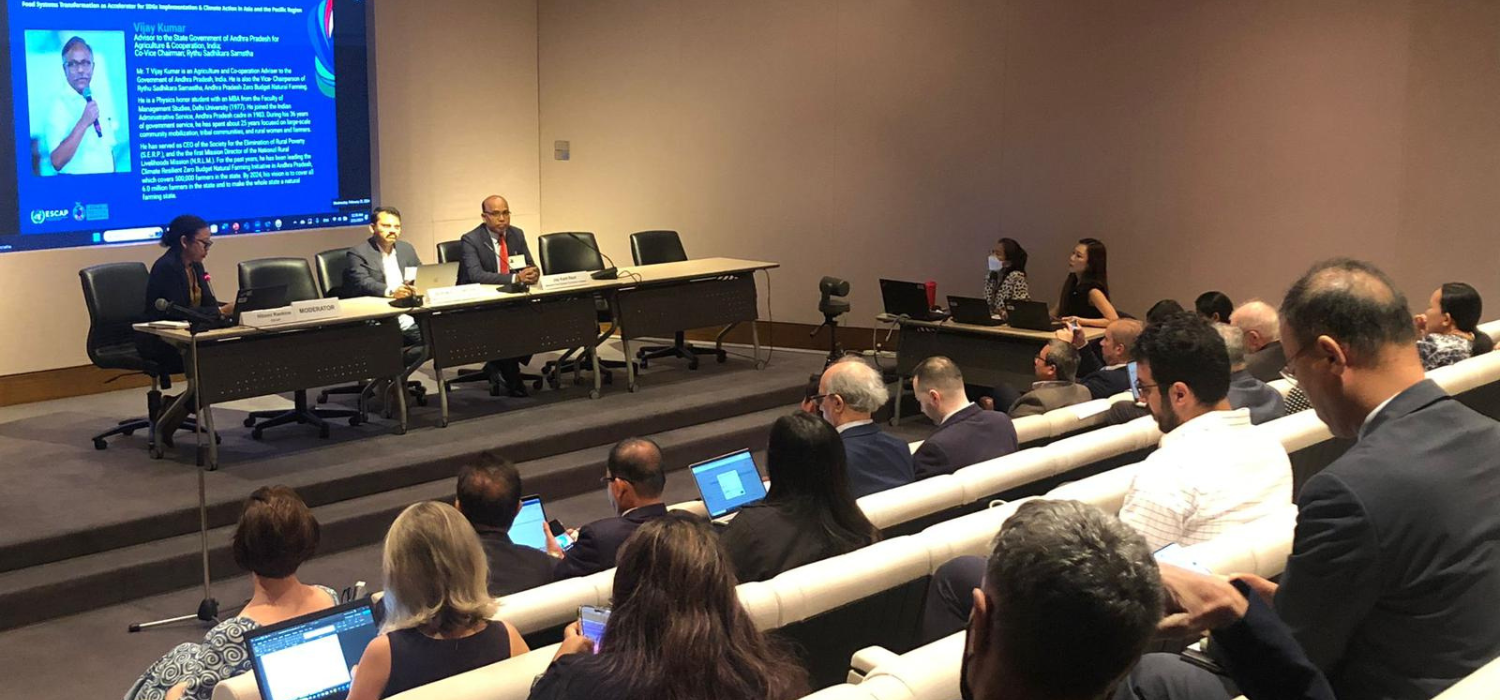SEED FUNDING JOINT PROGRAMMES
Rwanda
Resilient Food Systems: Enhanced Value Chain and Post Harvest Management





PROJECT TITLE | Resilient Food Systems: Enhanced Value Chain and Post Harvest Management |
| Context | Food systems transformation is embedded in several national policies in Rwanda, including the National Transformation Strategy, the Strategic Plan for Agriculture Transformation, the National Environment and Climate Change Policy. In 2021, Rwanda developed its National Pathway, which highlights four priority areas for the country towards 2030: ensuring food security and nutrition for all, while increasing demand for healthy diets; enhancing the environmental sustainability of food systems; improving livelihoods for farmers and all workers in food systems while building resilience to shocks; promoting inclusion of women and youth in food systems, including through enhanced financial opportunities. |
| PUNOs | FAO, WFP, IFAD |
| Contribution to SDGs | SDG 1 No Poverty; SDG 2 Zero Hunger; SDG 8 Decent Work and Economic Growth; SDG 13 Climate Action |
| Contribution to other SDG transitions | Decent Jobs and Universal Social Protection; Energy Access and Affordability |
| Duration | July 2024 – June 2025 |
| Expected financial leverage | $ 3,070,000 |
| Alignment with SG Call to Action | Policy integration; Food systems governance; Research, data, technology and innovation; Inclusive and participatory design; Private sector engagement |
| Outcomes | The JP leverages on improved post-harvest management as a strategic approach to simultaneously reduce food loss, improve incomes, and boost food availability. The JP promotes the economic integration of youth-led MSMEs and builds linkages with partners and initiatives focused on nutrition and food security to connect the dots between food production, processing and consumption. |
| Partners |
|
| Outputs |
|
Insights on building sustainable food systems in Asia-Pacific

Bangkok, Thailand – During the 11th Asia-Pacific Forum for Sustainable Development (APFSD), the UN Food Systems Coordination Hub, ESCAP, and FAO collaborated on hosting a side event entitled: ‘Food Systems Transformation as an Accelerator for SDGs Implementation and Climate Action in Asia and the Pacific Region’. The event served as a follow up to the UN Food Systems Summit +2 Stocktaking Moment (UNFSS+2), offering a diverse array of perspectives on aligning food systems transformation with climate action, drawing insights from key global summits in 2023 such as the UNFSS+2, the SDGs Summit, and COP28.
Leadership interventions
The event commenced with interventions from distinguished leaders: Sangmin Nam, Director for Environment and Development division at ESCAP, Jong-Jin Kim FAO Assistant Director-General for Asia and the Pacific and Stefanos Fotiou, Director of the FAO Office of SDGs and the UN Food Systems Coordination Hub. They emphasized the crucial need for collaboration among UN agencies and across regions in accelerating SDG implementation and climate action. Underscoring the significance of the Emirates Declaration on Sustainable Agriculture, Resilient Food Systems, and Climate Action, endorsed by 159 countries, they outlined ambitious plans to update Nationally Determined Contributions (NDCs) by 2025, integrating action items on food systems.
Country experiences
Jay Kant Raut, National Convenor for Nepal, provided valuable insights into their national strategies aimed at advancing SDG 2 (Zero Hunger). Nepal's government has demonstrated a resolute commitment to embracing the SDGs, leading to significant advancements across socioeconomic, environmental, and political domains. The nation has achieved notable reductions in undernourishment, global hunger rates, stunting, and wasting, vividly showcasing the benefits of their dedicated efforts.
Meanwhile, H.E. Sok Silo, National Convenor for Cambodia, highlighted the significant role of UNFSS+2 and COP28 in catalyzing global change across Cambodia. He presented the Pentagonal Strategy, a comprehensive plan aimed at bolstering social protection and enhancing food security amid climate challenges. Cambodia's commitment to global cooperation is further demonstrated by its role as a founding member of the Alliance of Champions for Food Systems Transformation. H.E. Sok Silo emphasized the crosscutting nature of food systems, advocating for integrated actions among government ministries, local authorities, civil society, and the private sector, suggesting that such mechanisms be led by the office of the president or prime minister.
Stakeholder initiatives
Various stakeholder initiatives were showcased during the event. Rebecca Leonard from the TEEBAgriFood Initiative emphasized the imperative of incorporating sustainability into agricultural and food policies, citing case studies on organic rice production in Thailand to highlight the benefits of transitioning to organic practices. Vijay Kumar and Sudhakar Yerrakonda shared valuable insights from the 'Rythu Sadhikara Samstha' farmer pilot project initiated by the government of Andhra Pradesh, India. The program, which enrolled 850,000 farmers, demonstrated a significant increase in the availability of nutrient-dense foods through regenerative agriculture methods. They elaborated on the key lessons learned in scaling up the project, notably through the organization of rural women networks.
Thongdam Phongphichith of SAEDA, Lao PDR, provided insights into the benefits of multistakeholder collaboration, acknowledging challenges in farmer and rural people capacity and access to climate information. He also highlighted further challenges of farmers on appropriate technology and the need for long-term program support. This was complemented by Jidan Fikri, runner-up of the youth climathon of the APFSD, highlighted challenges faced by farmers in adopting new technologies for climate-resilient agriculture, including cost, complexity, and maintenance. His initiative, "Terragrow," aimed to address these challenges with a simple, low-cost solution accessible to those without technical backgrounds.
Closing remarks
Stefanos Fotiou concluded the event by reiterating the importance of transitioning towards sustainable agriculture, overcoming vested interests, establishing new financial structures, mainstreaming private sector accountability and advocating for regulatory changes which encourage sustainable consumer habits.
View the recording
